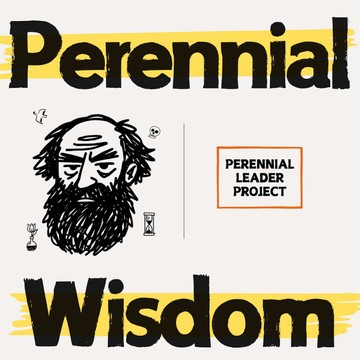

Jay Garfield
Professor of Philosophy, Logic, and Buddhist Studies at Smith College and visiting professor at Harvard Divinity School. Author of "Losing Ourselves: Learning to Live without a Self."
Top 10 podcasts with Jay Garfield
Ranked by the Snipd community

125 snips
Oct 30, 2024 • 1h 11min
Suffering and the self (with Jay Garfield)
In a captivating conversation, Jay Garfield, Doris Silbert Professor in the Humanities and expert in Buddhist philosophy, dives into the nature of suffering and the self. He discusses whether overcoming craving and aversion can liberate us from suffering and how personal perception shapes our experiences. Garfield explores the concept of self as an illusion and the implications of interconnectedness in achieving true happiness. He also contrasts Buddhist ethics with Western perspectives, emphasizing compassion and community over self-centered pursuits.

66 snips
May 23, 2022 • 54min
#282 — Do You Really Have a Self?
Jay Garfield, a professor of philosophy and author, shares his expertise on the illusion of self. He delves into how our perception of selfhood is an interdependent construct, integrating Buddhist and Western philosophies. The discussion challenges traditional notions of identity and free will, advocating for a deeper understanding of consciousness separate from the self. Garfield emphasizes the role of meditation in reshaping our experience of reality, encouraging listeners to reflect on the complexities of personal identity.

29 snips
Jun 19, 2025 • 2h 40min
Jay Garfield & Bernardo Kastrup - Emptiness vs Idealism
In this engaging discussion, Jay Garfield, a Harvard philosopher specializing in Buddhist thought, and Bernardo Kastrup, a leader in modern metaphysical idealism, explore the intricate dance between emptiness and idealism. They delve into the complexities of consciousness, emphasizing the interconnectivity of reality. The duo examines how personal experiences shape philosophical perspectives, debates the nature of perception, and highlights the significance of respecting differing opinions in academia. This vibrant exchange unpacks the rich interplay between Eastern and Western philosophies.

19 snips
Nov 26, 2025 • 27min
Global Philosophy: What is the Person?
Jay Garfield, a philosopher specializing in Buddhism, and Yang Xiao, an expert in comparative philosophy, dive deep into the concept of personhood. Garfield explains Buddhism's rejection of a permanent self, highlighting personhood as a continuum of experiences. Xiao shares insights on how Chinese culture uses proper names and rituals to express ongoing personhood. Together, they explore the multifaceted views on identity across various global traditions, touching upon the intriguing intersections of body, soul, and the afterlife.

15 snips
Aug 10, 2022 • 60min
How (And Why) To Lose Yourself | Jay Garfield
Jay Garfield, a philosophy professor at Smith College and an expert in Buddhist studies, tackles the intriguing concept that our sense of self is an illusion. He discusses the distinction between being a person and having a self, emphasizing that realizing this can be liberating. Garfield shares insights into how losing oneself can lead to deeper happiness and the significance of interconnection. He also explores the difference between pain and suffering and critiques the impact of social media on our identities, all while drawing from Buddhist principles.

8 snips
May 29, 2024 • 27min
Eastern Traditions: What is the Human Person?
Spiritual leaders and philosophers discuss Eastern traditions' views on the human person, exploring concepts like consciousness, self, qi, and dualism. They delve into Hinduism's idea of the human person, Buddhist perspective on the self, and Chinese ontology of qi. The podcast contrasts beliefs in individual and cosmic selves, highlights universal salvation and multiple paths to salvation, and examines the illusion of a continuous self in Buddhism.

7 snips
Oct 23, 2022 • 55min
Episode 112, 'The Philosophy of Buddhism' with Jay Garfield (Part I - The Nature of Reality)
Join Professor Jay Garfield, a leading scholar in Buddhist philosophy, as he sheds light on the intricate teachings of Siddhārtha Gautama. They delve into the poignant themes of suffering, impermanence, and interdependence, questioning why these insights are often overlooked in Western philosophy. Garfield advocates for a reevaluation of how Buddhist thought can transform our understanding of happiness and morality. Prepare to explore the concept of emptiness and its role in cultivating a deeper appreciation of life.

Oct 31, 2023 • 56min
Jay Garfield: Buddhist Philosophy In-Depth (#172)
Jay Garfield discusses Buddhist philosophy, cognitive illusions, and online courses with Wisdom Academy. They explore the concept of self, challenges conventional notions of personhood, and delves into illusions and subjectivity in Buddhist philosophy. The conversation also covers the conventional nature of existence, comparative philosophical traditions in Buddhism, and explores the limits of cognition and subjectivity. Lastly, they reflect on Wilfred Sellers' empiricism and the ethical core of Dharma.

Apr 17, 2024 • 55min
Getting Over Yourself with Jay Garfield
Join renowned philosopher Jay Garfield, a professor at Smith College and Harvard Divinity School, as he dives into the transformative idea of losing oneself. He explores the profound distinction between conventional and ultimate truths and how understanding this duality enhances ethical living. Garfield humorously shares his unexpected journey into philosophy, discusses the varied perceptions of reality among different beings, and advocates for interdependence over individualism, emphasizing that gratitude fosters true happiness.

Nov 6, 2022 • 49min
Episode 112, 'The Philosophy of Buddhism' with Jay Garfield (Part II - Further Analysis and Discussion)
In this enlightening discussion, Professor Jay Garfield, a leading proponent of Buddhist philosophy, dives deep into the intricate world of samsara and the six realms of existence. He challenges individualistic views in capitalism, advocating for a more interconnected understanding of humanity. Garfield also elucidates the philosophical context of Buddhism, presenting it as a metaphor for suffering that transcends cultural boundaries. His playful comparisons and engaging banter highlight the importance of discourse in philosophy, making complex ideas accessible and relatable.


